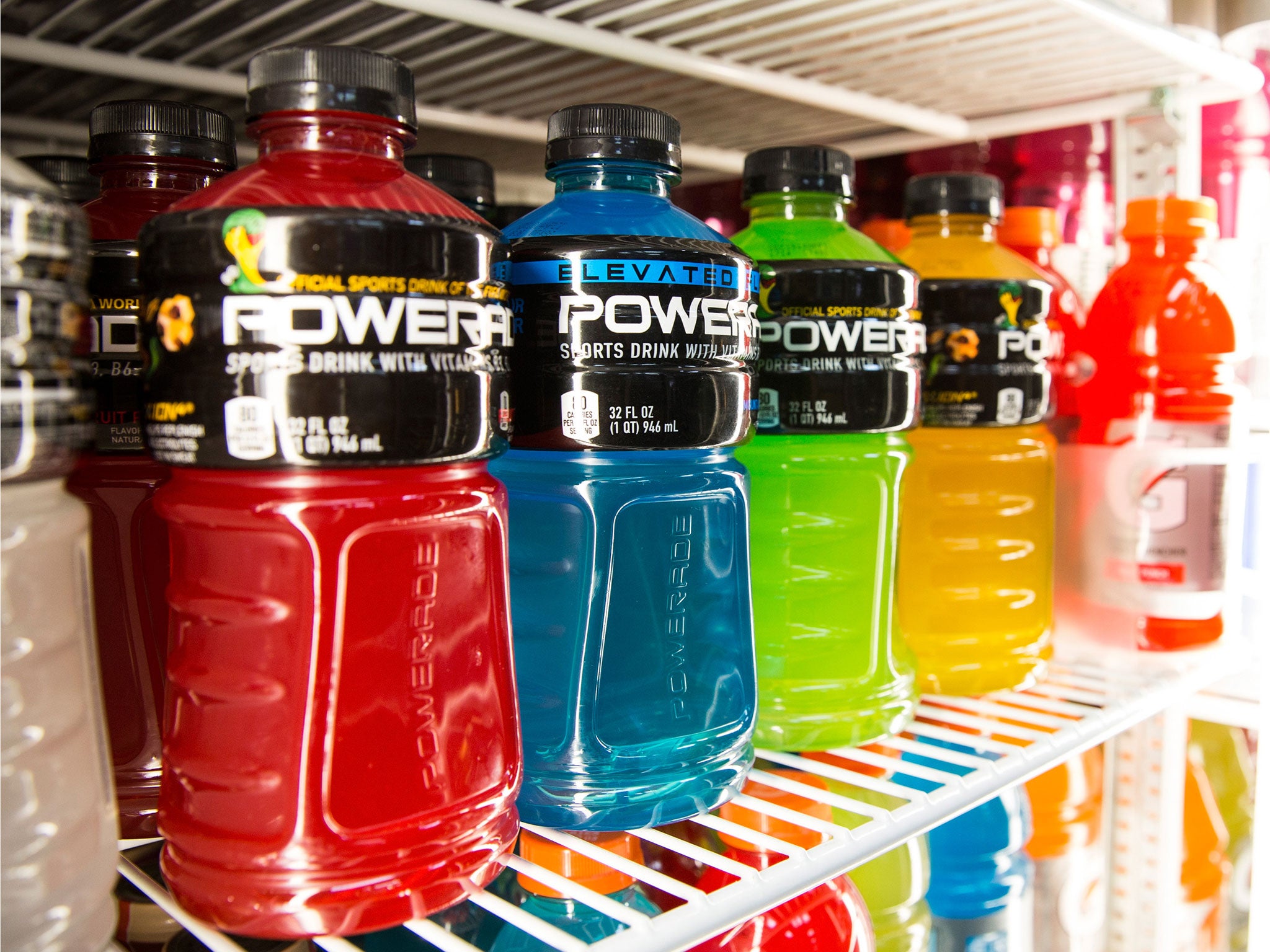Adding a spoonful of sugar to water has the same effect as sports drinks, scientists find
Researchers recommend diluting 8g sugar per 100ml of water

Adding a spoonful of sugar to a class of water could be more effective at making exercise easier than sports drinks, research has suggested.
Researchers at the University of Bath found stirring table sugar in to a bottle of water could mean the difference between success and failure for marathon runners, cyclists and long distance athletes.
In a study published in the American Journal of Physiology - Endocrinology and Metabolism, they assessed the impact of endurance exercise on liver glycogen levels.
The team tested several drinks to see how different sugars could slow the decline of liver glycogen levels, which leads to tiredness.
Their experiment, which used long-distance cyclists as participants, found both glucose and sucrose can help maintain liver glycogen levels.
Both sucrose - in the form of table sugar - and glucose are important carbohydrates, often referred to as simple sugars.
The amounts of sugar in food and drink
Show all 6However, the researchers did find combining the different sources of sugars improves the rate at which people can absorb them.
They warned that glucose-only drinks could produce stomach discomfort and suggested sucrose-based alternatives, or simply sugar in water.
The difference between them is that each fructose molecule is made from one glucose and one fructose molecule linked together.
Many sports drinks designed to provide energy during exercise now use a mixture of glucose and fructose, but many still rely on glucose alone.
Doctor Javier Gonzalez, the lead researcher, told The Telegraph: "The carbohydrate stores in our liver are vitally important when it comes to endurance exercise as they help us to maintain a stable blood sugar level.
"Our study showed that ingesting carbohydrates during exercise can prevent the depletion of carbohydrate stores in the liver but not in muscle.
"We also found that the exercise felt easier, and the gut comfort of the cyclists was better, when they ingested sucrose compared to glucose.
"This suggests that, when your goal is to maximise carbohydrate availability, sucrose is probably a better source of carbohydrate to ingest than glucose."
He went on to recommend up to 90g of sugar per hour - diluted to 8g sugar per 100ml - for optimal performance during exercise lasting over two and a half hours.
Subscribe to Independent Premium to bookmark this article
Want to bookmark your favourite articles and stories to read or reference later? Start your Independent Premium subscription today.

Join our commenting forum
Join thought-provoking conversations, follow other Independent readers and see their replies